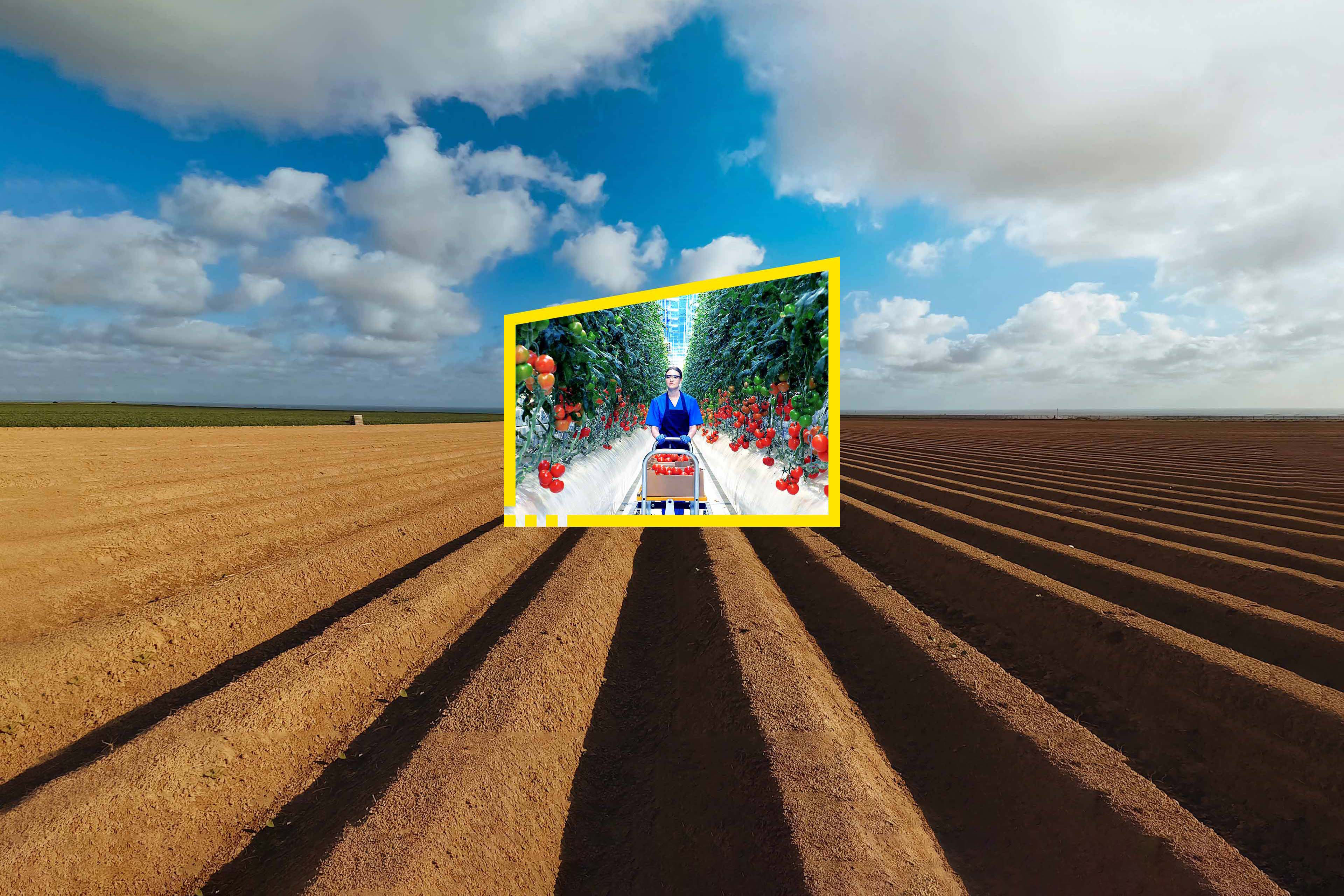EY refers to the global organization, and may refer to one or more, of the member firms of Ernst & Young Global Limited, each of which is a separate legal entity. Ernst & Young Global Limited, a UK company limited by guarantee, does not provide services to clients.

Cheese dairy masters and enthusiasts turning towards culinary tourism
The two generations of the Brence family are writing a successful entrepreneurial story for the Pustotnik Farm with their business niche of cheesemaking. The father, Milan Brence, took over a traditional farm with 500 years of family history at the age of only 24. “My wife and I understood from the very beginning that we had to develop two separate units: a traditional farm and a company to lead us toward a variety of interesting opportunities.” The Pustotnik Farm as a company had €960.000 net sales revenue last year, almost €26.000 net profit and nine employees. This year, despite the pandemic, those employees have increased to 12.
People never complained around here. Everybody talked only about what to build and what to develop in our village
No step forward at the Pustotnik Farm happened by chance; they were always prepared for it.
Farm and business go hand in hand
“It is hard to make a farm fit the patterns of the economy, since nothing on a farm is permanent,” explains Director Milan. “There is no hourly wage or social security on a farm — you have to give it your all. Things are never so bad you cannot survive, but you are constantly battling with nature and natural resources. Žuža and I have thought about it like this: If I got the farm from my ancestors who developed and held it for centuries, we have to improve it and leave it in even better shape. But what pulled us out of farming was our business.”
As a young man, after completing his agriculture degree and mandatory military service, Milan returned from the city to the countryside and “bit into” the management of the farm. His son Niko also became the head of the farm before his 30th birthday. Milan and Žuža strongly believe that children should be given the opportunity to take on responsibilities and grow when they are young enough. Only this way can they successfully continue the family business.
“We all worked on the farm as children. It was our way of life. We were given responsibilities appropriate to our ages, which was very educational,” confirms Katarina. Her father adds: “Our family is relatively large, we have two sons and two daughters, which is why we wanted to make sure everyone gets their fair share as soon as possible. This will make it much easier when we decide to retire from active involvement in the business.”
There is no hourly wage or social security on a farm — you have to give it your all.
People never complained in the Poljanska valley
Milan inherited his entrepreneurial spirit from his father, who was a very progressive thinker. He was the president of the local community which owned a construction company. “People never complained around here.Everybody talked only about what to build and what to develop in our village. Such things stay with you.” After Milan and his wife took over the farm, they stayed in agriculture for a while. “Agriculture is a social category, not an industry you could live off.
When our children went to kindergarten and school, we did not have enough money for all their activities. This encouraged us to begin rocessing milk as a supplementary activity,” explains Žuža. She had studied chemistry, but when she was presented with the opportunity of learning cheesemaking in Switzerland, she took it. As she says, in the 30 years since, not a single year has passed without investing money, energy and time into education.
Ready for every step forward
No step forward at the Pustotnik Farm happened by chance; they were always prepared for it. After Slovenia became independent, Žuža sent a handwritten request for a stall at the Ljubljana market, which she still has in her archive. “This stall was essential for our development, not only because of the additional money, but because we could talk to a wide range of customers who gave us feedback and told us their wishes. When we started selling at the market, we had only one product, cheese. We did not know how to make other things at the time.”
In the early 1990s, the Spar retailer also came to Slovenia. A family friend suggested that they could become its supplier. So, they founded a company in 1991, obtained the HACCP certificate and became the first private cheese dairy in Slovenia.
Children need to be given responsibilities and the opportunities for development when they are young. Only this way can they further develop the family business.
A new generation takes the reins
The children grew up and left home although the eldest, Beno, came back to help on the farm after gaining a philosophy degree. Later he left again, this time to study traditional cheesemaking processes still used only in the Alpine regions of Austria and Switzerland, and for now remains abroad. Katarina studied hospitality and tourism in Maribor and when she was only 20, she proved her worth by organizing the opening ceremony for the new dairy, an event for 800 people that attracted the attention of customers and the media. Today she actively manages the hospitality and retail sides of the business, while Niko, who took over the farm, manages the livestock. The youngest, Elizabeta, finished high school in Austria and wanted to study in Vienna, but her sister’s maternity leave drew her back to work at the company immediately after school. Niko’s wife Ana, a food technologist, also plays a crucial role at the cheese diary and has many ideas for future products.
“Until 2010, when we started building the cheese dairy, we felt no pressure to participate in our parents’ business,” explains Katarina. But with the cheese dairy, the children’s paths were laid out. The parents developed the farm, which produces the basic raw material, and took it to the next phase, with the product as the added value. Now their children work towards the logical next step, culinary tourism.
In 2015 they rented a large space in the Ljubljana Koseze market and opened a dairy café. Their products can be found in the Mercator and E. Leclerc retail stores, and last year they became a premium supplier for Maxi Market.
Based on current health food trends and the rising popularity of goat’s milk, they have been able to support a local farm focusing on goat farming and they also support sheep farmers.
They can offer a higher price for cheese milk
Cow’s milk makes up 60% of the production at the Pustotnik cheese diary and the remaining 40% comprises goat’s and sheep’s milk bought from partner farms. Based on current health food trends and the rising popularity of goat’s milk, they have been able to support a local farm focusing on goat farming and they also support sheep farmers. Milan explains: “Our good name, numerous clients, and recognized quality allow us to set a higher price for our products. This means that we can pay our partner farms a better price for their sheep’s milk.”
They have made several investments to improve working conditions at the Pustotnik Farm, but retained what makes them special: a traditional, largely manual milk processing method. To apply for European funds, they would have to increase their scale of production, but they refuse. The Brence family wants to work and live sustainably and keep a healthy balance between hard work and rest.
“Our parents changed an ordinary farm into a cheese dairy and shop and we, their children, try to maintain that and find out what makes us happy. Maintenance alone takes a lot of work, which leaves less time and energy for thinking about progress and development,” ponders Niko. But they are not short on ideas.
At Pustotnik Farm, they are maintaining a traditional, largely manual milk processing method.
They could barely handle all their orders during the pandemic
A third of the Pustotnik Farm products are sold in the tourist sector. According to Milan, Ljubljana is full of their products and most go to restaurants, which had to close during the pandemic. As they could not interrupt production, they used a van for deliveries to individual homes. “Katarina and I posted on our social networks that we were offering home delivery. In two days, we had so many orders we could no longer handle them via phone and e-mail,” says Elizabeta.
About six months earlier the sisters began thinking about an online shop.“We did market research and discovered that this is not a quick and simple process. The main challenge was logistics, the so-called cold chain. People in Slovenia were not used to buying food online. But when the pandemic arrived we were able to open our online shop in 10 days!” The support of a leading Slovenian online shop provider made their decision even easier. The response was incredible, and the family was surprised by the loyalty of their customers. But Milan knows that this is the result of long years of work: “Before, people bought our products at the market. When they could no longer do that, they found us through different channels.” Katarina explains that this resulted in a massive change in their work processes and rapid development exceeding that of the previous 10 years.
Their products can be found in the Mercator and E. leclerc retail stores, and last year they became a premium supplier for Maxi Market.
From excellent products to excellent experiences
How will the Pustotnik Farm develop in the future? Katarina answers: “If we want to realize our development plans, we must first be 100% on top of what we have now. We have been gradually optimizing our organization and standardizing processes in the cheese dairy, on the farm and in sales for years.”
She is also considering expanding their product range. Niko’s wife Ana adds: “We have to reach a point where we always have sufficient stock of matured cow cheese, because it always sells out so quickly.” She points out that they have already reached the standard of quality for semi-hard cheeses. As she also loves mold cheeses, she hopes they will soon be able to offer their own blue cheese.
Niko, who manages the farm, says that they will expand the cow shed and increase the number of animals, to which Katarina adds that they also want to make their cows more comfortable by renovating the facilities. They are also considering buying additional land or pastures, as currently only part of their herd can be let out to graze.
“Their storage rooms and cool rooms are already too small,” says Katarina, “but other areas have a lot of potential. We offer excellent products, which means we could also offer cookery classes, culinary events and so on.” She adds that culinary and local food trends all point in this direction.
“Doing business is often very difficult. Things can be strained, unpleasant.This is when you have to adapt, work through disagreements and leave them in the past. This can be easier to do in a family,” concludes Katarina.
Katarina Brence, Milan Brence, Žužana Brence Konc, co-owners
Company name: Kmetija Pustotnik, d. o. o.
Number of employees (2019): 9
Net sales revenue (2019): €961,333
Interviewees:
Katarina Brence, Authorized Representative and co-owner
Eilzabeta Brence, Sales and Marketing
Milan Brence, Director and co-owner
Žužana Brence Konc, Deputy-Director and co-owner
Nikolaj Brence, Farm owner
Ana Brence, Food Technologist
Summary
Pustotnik Farm in a nutshell: responsibility, commitment, entrepreneurial spirit, quality, partnership.



